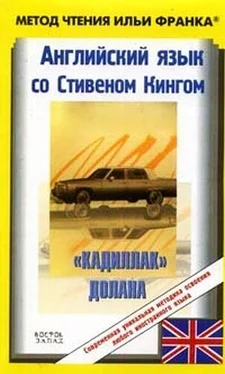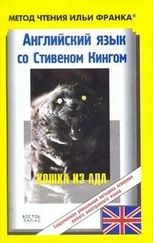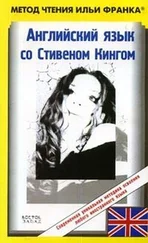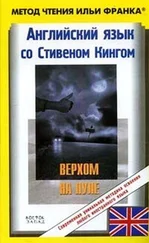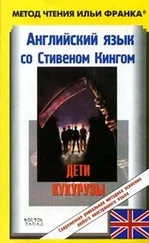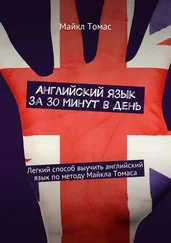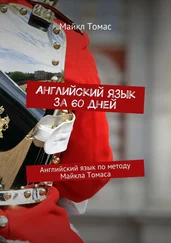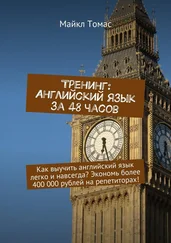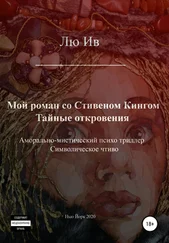wriggle [rIgl], roulette [rH'let], ricochet ['rIkqSeI]
I had been worried about the windshield. There was always a chance that it could have broken inward, allowing Dolan space enough to wriggle up and out. But I hadn't been too worried; I told you that Dolan's cars were built to the sorts of specifications required by tinpot dictators and despotic military leaders. The glass was not supposed to break, and it had not.
The Caddy's rear window was even tougher because its area was smaller. Dolan couldn't break it — not in the time I was going to give him, certainly — and he would not dare try to shoot it out. Shooting at bullet-proof glass from close up is another form of Russian roulette. The slug would leave only a small white fleck on the glass and then ricochet back into the car.
I'm sure he could have found an out (я уверен, что он нашел бы выход), given world enough and time (если бы у него было вдоволь мира и времени; “World Enough and Time” — «Вдовольмираивремени» — произведениеРобертаПеннаУоррена; to give ), but I was here now (но теперь здесь есть я), and I would give him neither (и я не дам ему ни того, ни другого).
I kicked a shower of dirt across the Cadillac's roof (я столкнул ногой: «пнул» дождь из грунта на крышу «Кадиллака»).
The response was immediate (реакция последовала немедленно).
'We need some help, please (нам нужна помощь, пожалуйста). We're stuck in here (мы застряли здесь; to stick — втыкать, вонзать; завязнуть, застрять ).'
Dolan's voice (голос Долана). He sounded unhurt and eerily calm (он не пострадал и был до жути спокойным: «он звучал неповрежденным и жутко спокойным»). But I sensed the fear underneath (но я почувствовал страх под /внешним спокойствием/), held rigidly in check (тщательно сдерживаемый: «удерживаемый строго под контролем»; tohold ), and I came as close to feeling sorry for him right then (и я был настолько близок к тому, чтобы сжалиться над ним в тот момент) as it was possible for me to come (насколько это было для меня возможно). I could imagine him sitting in the back seat of his telescoped Cadillac (я представил, как он сидит на заднем сиденье своего сплющенного «Кадиллака»; totelescope— выдвигать, раздвигать; складывать ), one of his men injured and moaning (один из его людей ранен и стонет), probably pinned by the engine block (возможно, придавленный блоком цилиндров), the other either dead or unconscious (второй либо мертв, либо без сознания).
immediate [I'mJdIqt], eerily ['IqrIlI], unconscious [An'kOnSqs]
I'm sure he could have found an out, given world enough and time, but I was here now, and I would give him neither.
I kicked a shower of dirt across the Cadillac's roof.
The response was immediate.
'We need some help, please. We're stuck in here.'
Dolan's voice. He sounded unhurt and eerily calm. But I sensed the fear underneath, held rigidly in check, and I came as close to feeling sorry for him right then as it was possible for me to come. I could imagine him sitting in the back seat of his telescoped Cadillac, one of his men injured and moaning, probably pinned by the engine block, the other either dead or unconscious.
I imagined it (я представил это) and felt a jittery moment (и пережил неприятное мгновение; jittery — пугливый; нервный, неспокойный, тревожный ) of what I can only term sympathetic claustrophobia (которое я могу выразить только /словами/ «сочувственная клаустрофобия»; term — термин; to term — называть, обозначать; выражать, показывать; claustrophobia — клаустрофобия, боязньзамкнутогопространства ). Push the window-buttons — nothing (пытаешься опустить окна: «нажимаешь на оконные кнопки» — ничего). Try the doors (пытаешься /открыть/ двери), even though you can see (хотя и видишь/понимаешь) they're going to clunk to a full stop long before you could squeeze through (что они остановятся с глухим стуком значительно раньше, чем ты сможешь протиснуться сквозь /них/; clunk— тяжелый удар; глухой звук /удара/ ).
Then I stopped trying to imagine (затем я перестал пытаться представлять), because he was the one who had bought this, wasn't he (потому что он сам купил себе это, не так ли; to buy )? Yes (да). He had bought his own ticket and paid a full fare (он купил свой собственный билет и заплатил сполна; fare— стоимость проезда или провоза багажа, тариф, плата за проезд ).
'Who's there (кто там)?'
sympathetic ["sImpq'TetIk], claustrophobia ["klLstrq'fqubIq], squeeze [skwJz]
I imagined it and felt a jittery moment of what I can only term sympathetic claustrophobia. Push the window-buttons — nothing. Try the doors, even though you can see they're going to clunk to a full stop long before you could squeeze through.
Then I stopped trying to imagine, because he was the one who had bought this, wasn't he? Yes. He had bought his own ticket and paid a full fare.
'Who's there?'
'Me (я),' I said, 'but I'm not the help you're looking for, Dolan (но я не собираюсь оказывать тебе помощь, на которую ты рассчитываешь, Долан: «я не помощь, которую ты ищещь, Долан»).'
I kicked another fan of grit and pebbles across the gray Cadillac's roof (я поддал ногой еще гравия и гальки, которые веером полетели на серую крышу «Кадиллака»: «я пнул еще один веер песка и гравия на…»). The screamer started doing his thing again (тот, кто ревел, снова принялся за свое) as the second bunch of pebbles rattled across the roof (когда вторая порция гальки с грохотом обрушилась на крышу ; rattle— треск, грохот, дребезхжание, стук ).
'Mylegs (мои ноги) ! Jim, mylegs (Джим, мои ноги) !'
Dolan's voice was suddenly wary (голос Долана вдруг стал настороженным; wary— осторожный; настороженный, подозрительный ). The man outside (человек снаружи), the man on top (человек наверху), knew his name (знал его имя). Which meant this was an extremely dangerous situation (что означало, что это исключительно опасная ситуация).
'Jimmy, Icanseethebonesinmylegs (Джимми, я вижу кости в моих ногах = торчащие из моих ног) !'
Читать дальше
